Anyone over 65-years-old with symptoms of Covid-19 will be able to get tested for the virus as the government ramps up its testing programme, Matt Hancock has announced.
The health secretary told the daily Downing Street press conference that older people and their families would now be eligible for testing, as well as people who leave their homes to work who have coronavirus symptoms.
Care home residents and staff will also be able to access tests – even if they do not have symptoms, as well as asymptomatic NHS patients and staff, Mr Hancock said.
Download the new Independent Premium app
Sharing the full story, not just the headlines
Ministers have been under pressure over the death toll in care homes with more than 5,000 deaths linked to coronavirus since the start of the outbreak, according to the latest official data.
The expansion in testing also comes as the government scrambles to meet Mr Hancock’s goal of 100,000 tests per day by the end of April.
Mr Hancock insisted the government was on track to meet the goal as it now has the capacity to carry out around 73,400 tests a day.
However he admitted the actual number of tests carried out on Monday was only 43,453, with only a few days to go before his self-imposed deadline.
Dispatch of home test kits would be expanded to 25,000 a day by the end of the week, he said, while mobile testing units manned by the army will reach more than 70 by the end of the week.
He said: “Today, because we have been able to expand capacity, I can expand access further. Building on successful pilots, we will be rolling out testing of asymptomatic residents and staff in care homes in England and to patients and staff in the NHS.
“This will mean anyone who is working and living in a care home will be able to have access to a test, whether they have symptoms or not.”
The latest news on Brexit, politics and beyond direct to your inbox
Mr Hancock said there was also capacity for all over 65s and their households with symptoms, and for all workers who have to leave home to do their jobs.
He said: “From construction workers to emergency plumbers, from research scientists to those in manufacturing, the expansion of access to testing will protect the most vulnerable and help keep people safe.
“It’s possible because we’ve expanded capacity for testing thus far.”
Mr Hancock insisted care homes had been a “top priority” for the government as he announced plans to publish daily data on deaths in care facilities and the community, rather than just hospitals.
Professor John Newton, co-ordinator of the national testing effort, said studies had shown that the presence of symptoms was “not really a good marker in the care home setting” for coronavirus among residents and staff.
“There were significant numbers who were asymptomatic who had the virus and so we have massively increased the amount of testing available,” he said.


1/30
Staff react outside Salford Royal Hospital in Manchester during a minute’s silence to pay tribute to the NHS staff and key workers who have died during the coronavirus outbreak
PA

2/30
Staff inside Camberwell bus depot in London, during a minute’s silence
PA
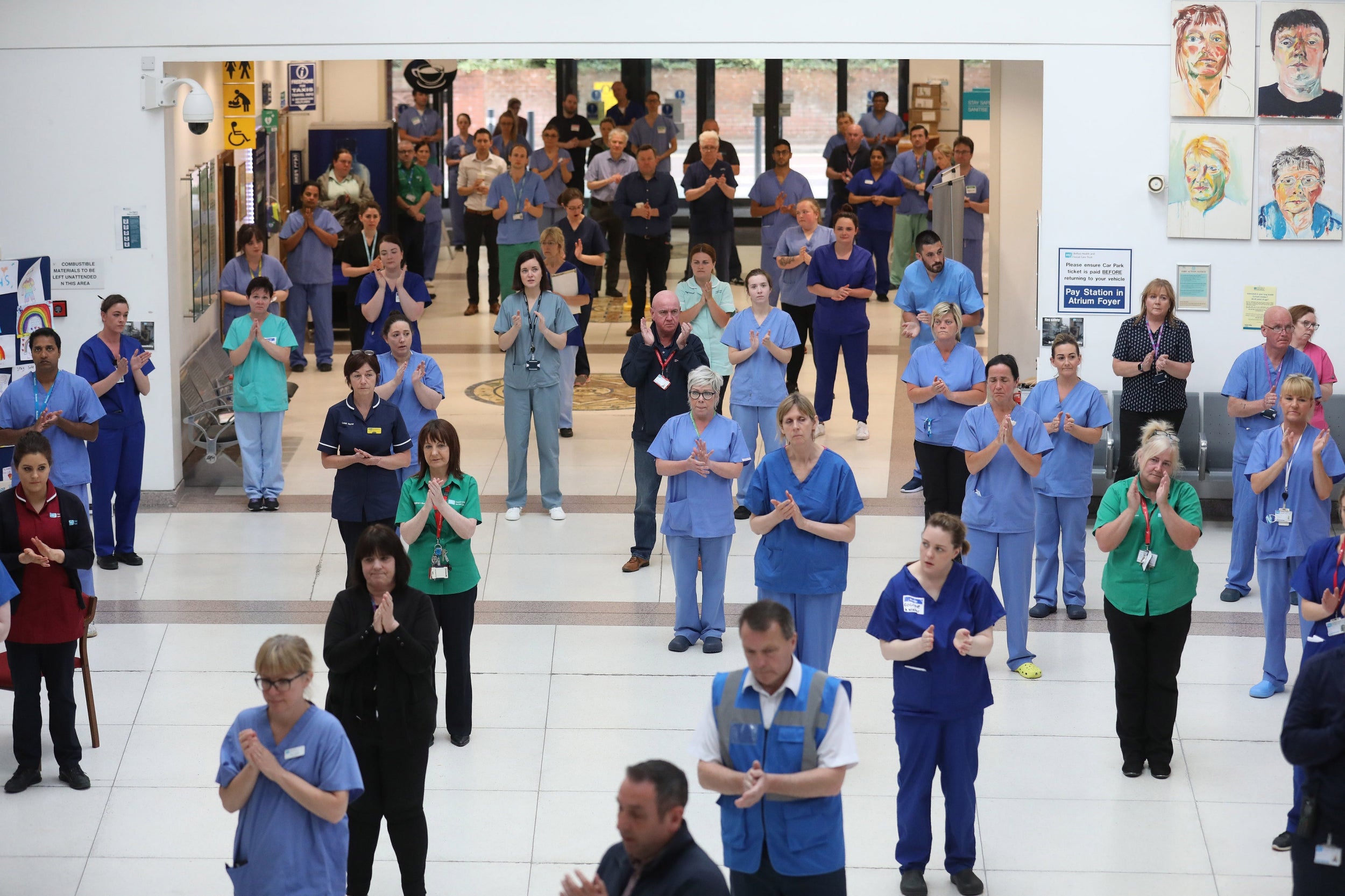
3/30
NHS staff at the Mater hospital in Belfast, during a minute’s silence to pay tribute to the NHS staff and key workers who have died during the coronavirus outbreak.
PA

4/30
Shoppers observe a minute’s silence in Tescos in Shoreham
Getty
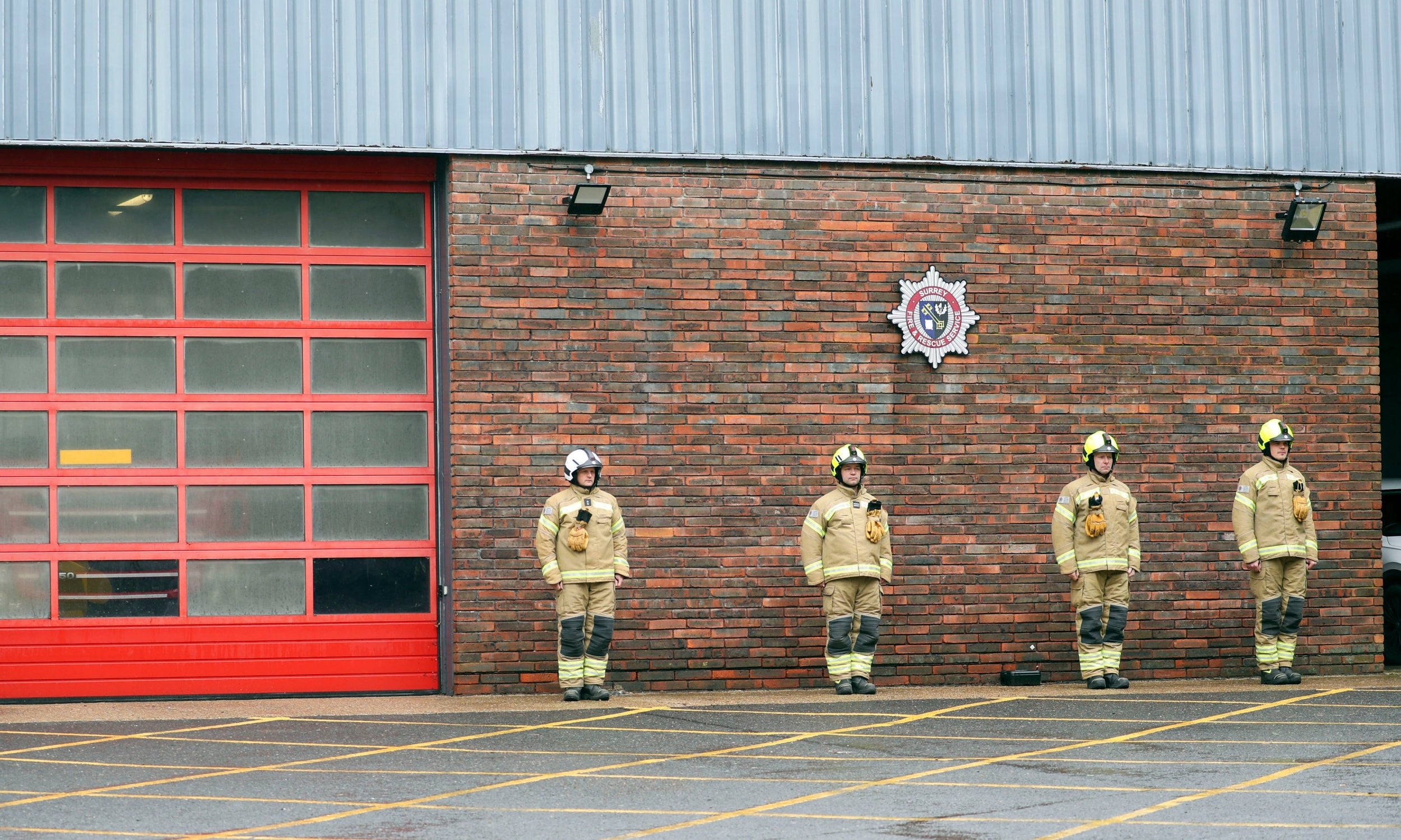
5/30
Firefighters outside Godstone fire station
PA

6/30 Salford Royal Hospital
Getty
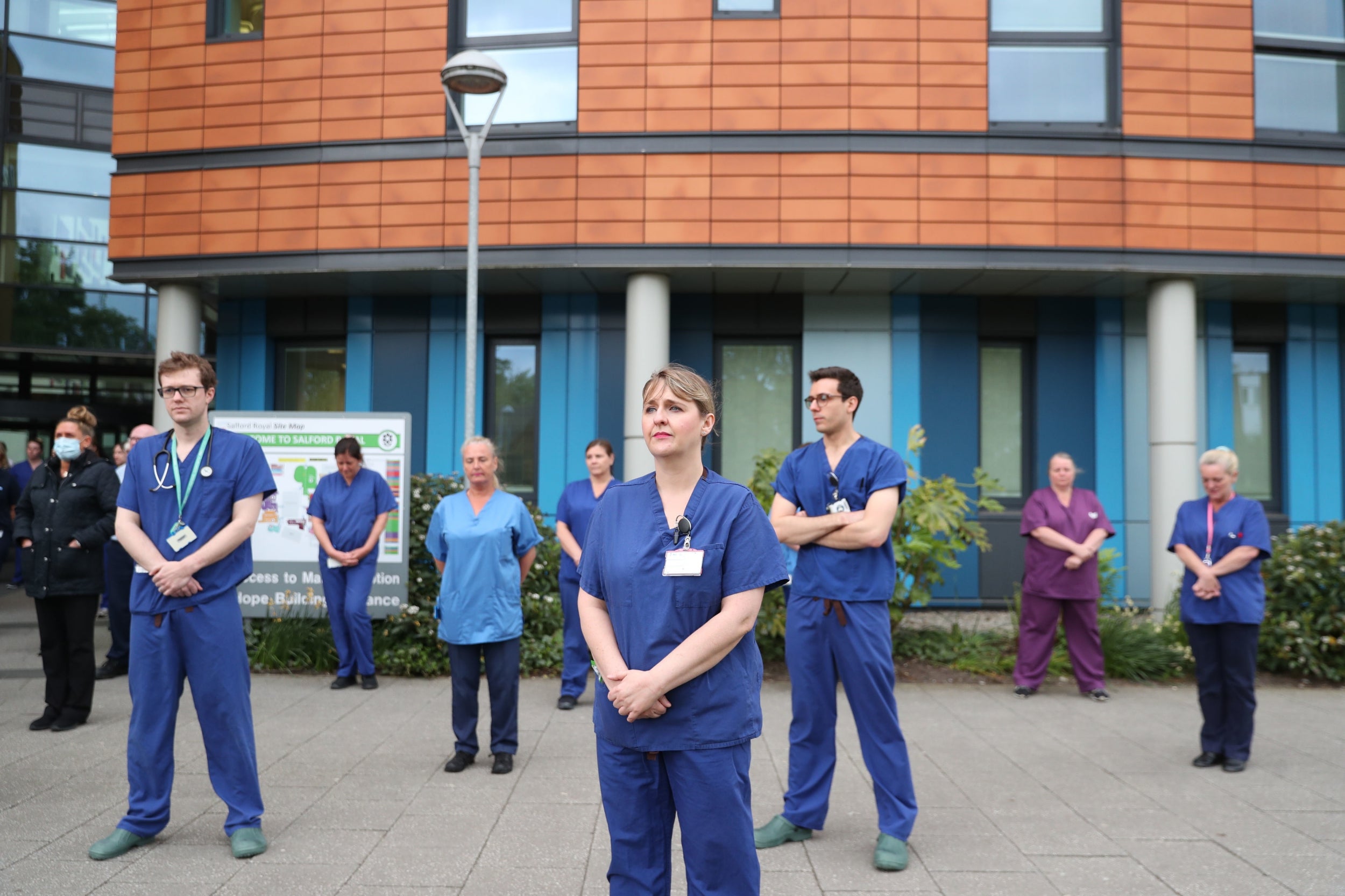
7/30 Salford Royal Hospital
PA
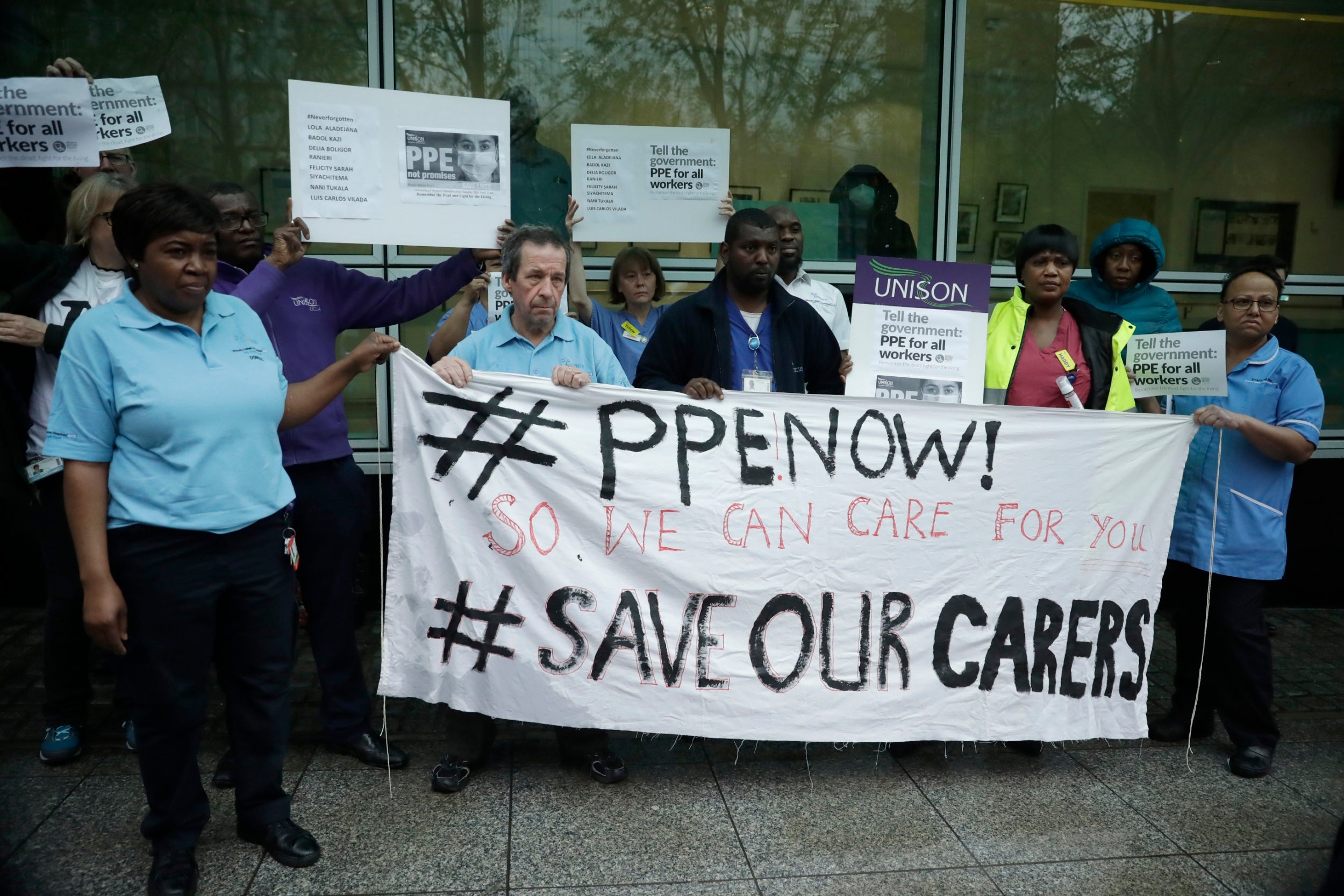
8/30
Hospital workers take part in a protest calling on the British government to provide PPE across Britain for all workers in care, the NHS and other vital public services after a nationwide minute’s silence at University College Hospital in London
AP

9/30
A school children’s poster hanging outside Glenfield Hospital during a minute’s silence
Getty

10/30
A man holds a placard that reads “People’s health before profit” outside St Thomas hospital
Getty
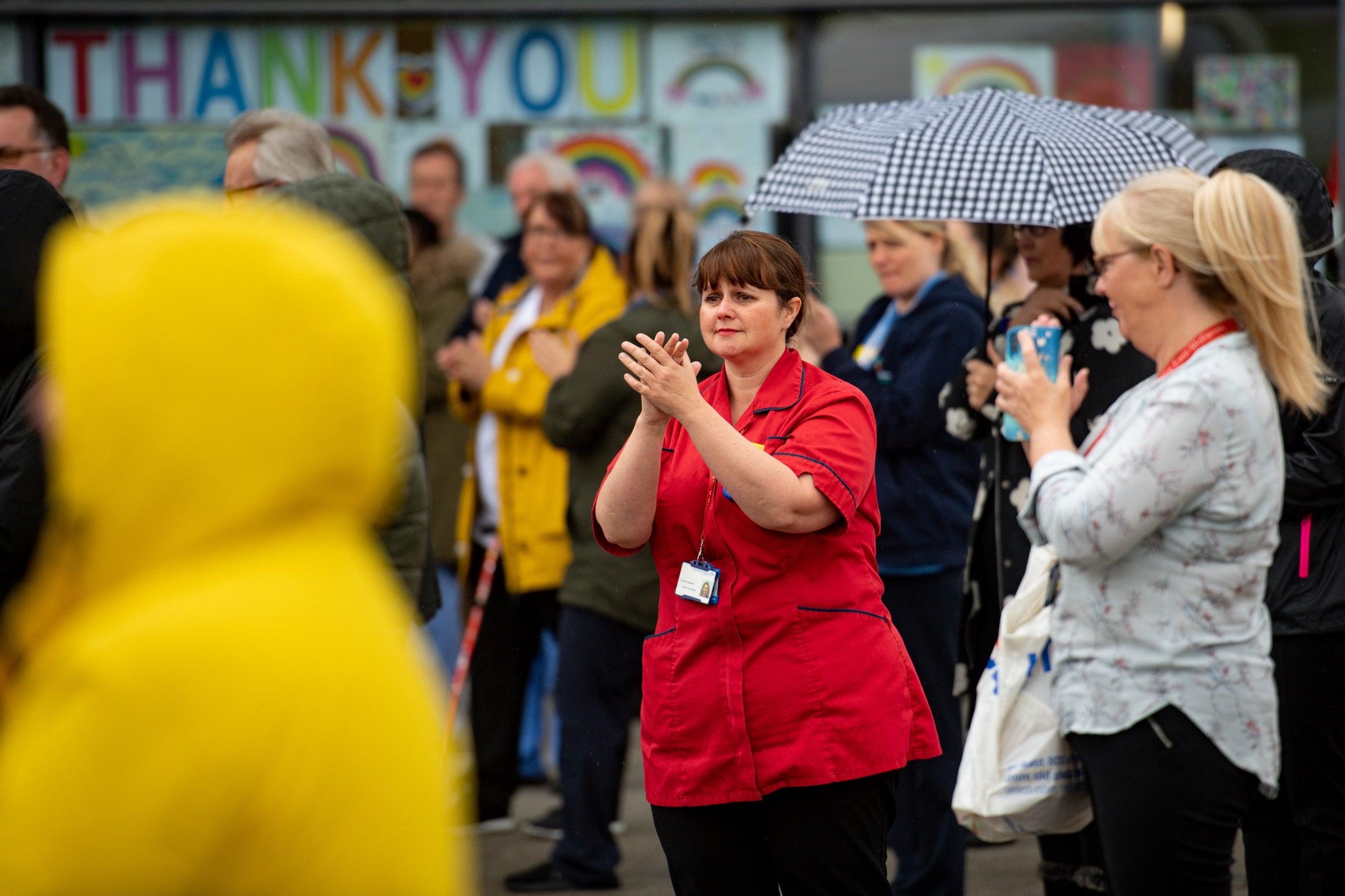
11/30
Staff members applaud outside the Royal Derby Hospital, following a minute’s silence
PA

12/30
Cabinet Secretary Mark Sedwill, Prime minister Boris Johnson and Chancellor of the Exchequer Rishi Sunak, stand inside 10 Downing Street, London, to observe a minutes silence in tribute to the NHS staff and key workers who have died during the coronavirus outbreak
PA

13/30 University College Hospital, London
Hospital workers hold placards with the names of their colleagues who have died from coronavirus as they take part in a protest calling on the British government to provide PPE
AP
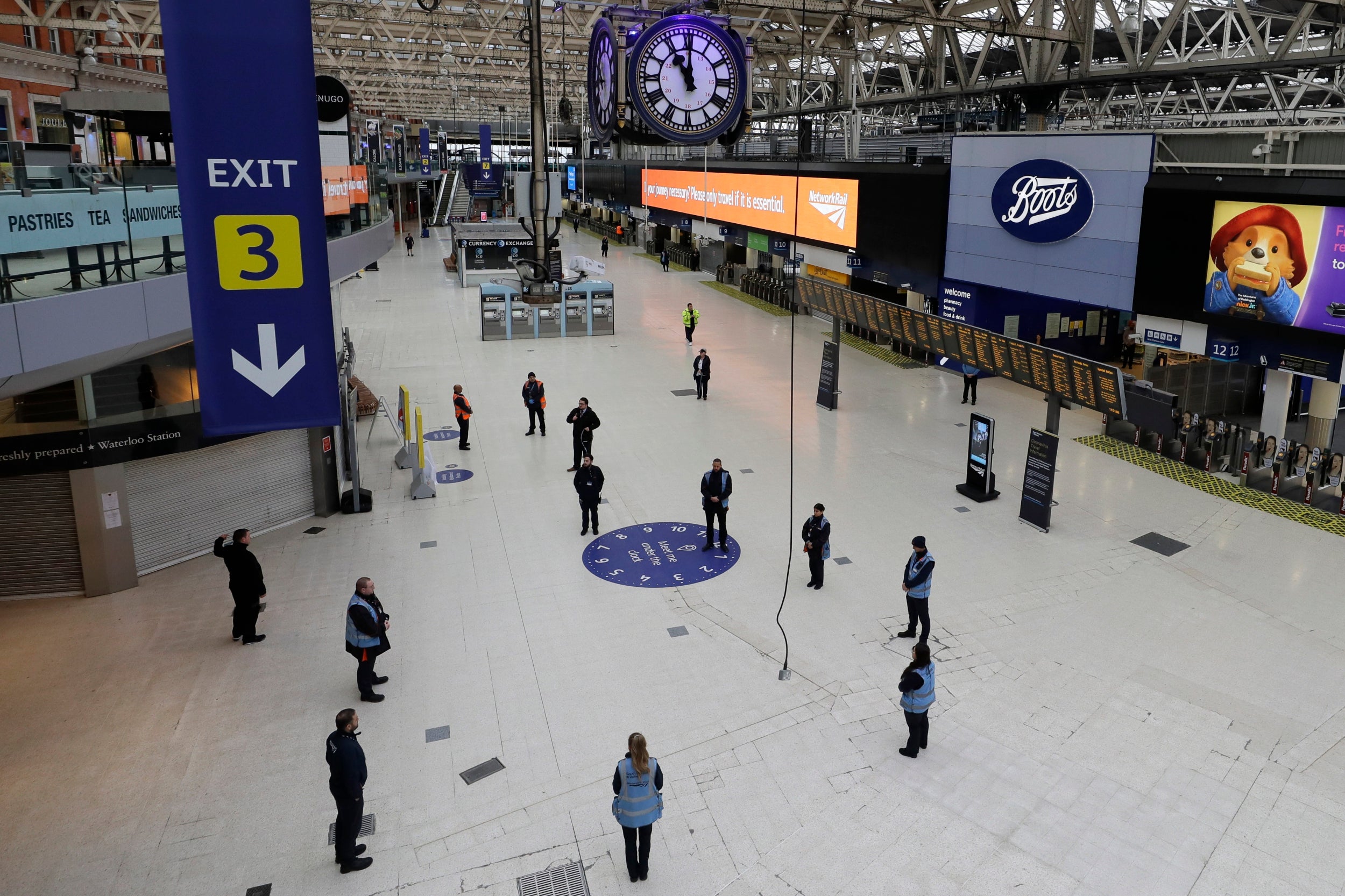
14/30
Staff at Waterloo Station in London, stand to observe a minute’s silence, to pay tribute to NHS and key workers who have died with coronavirus
AP
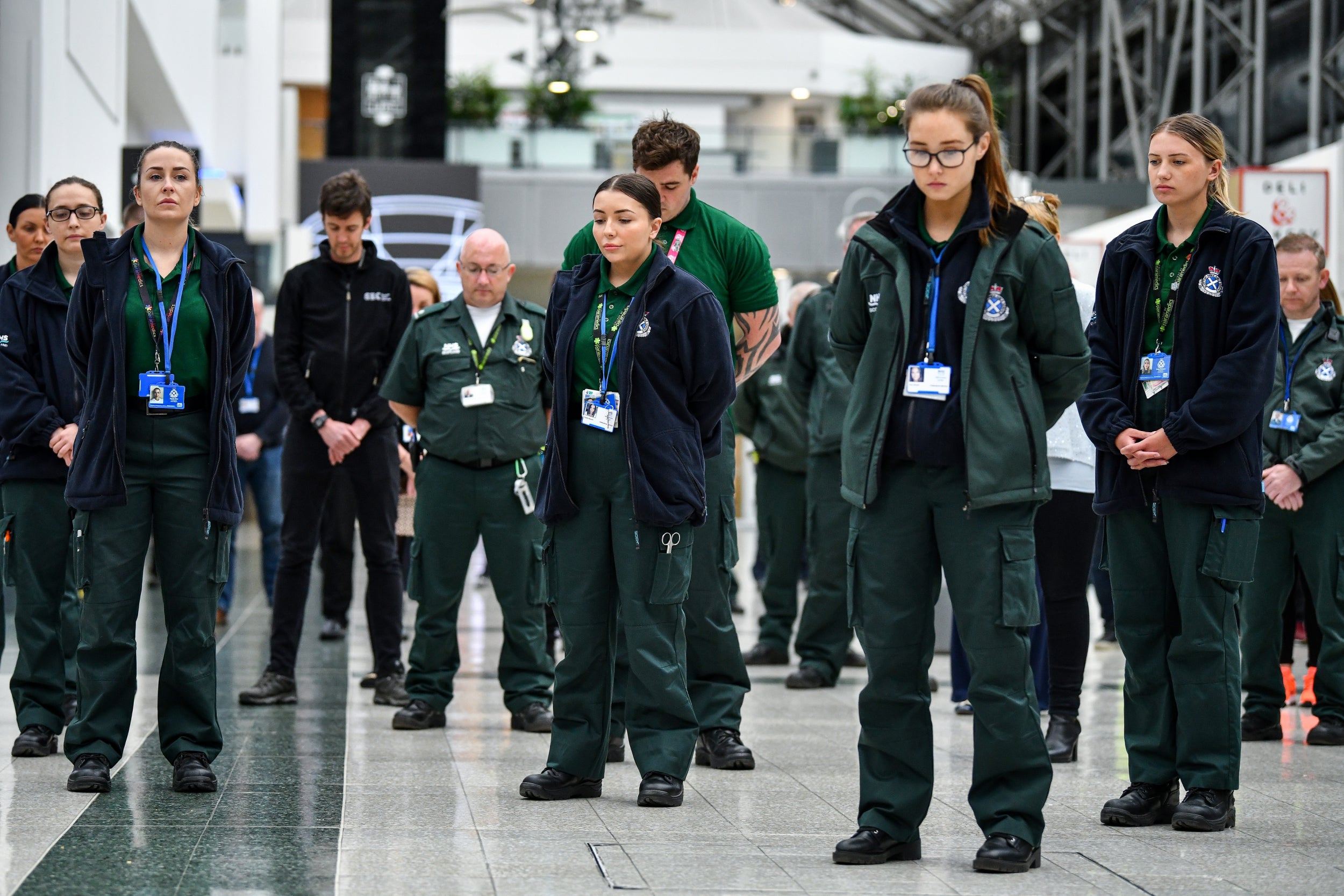
15/30
Medical staff at the Louisa Jordan hospital stand during a UK wide minutes silence to commemorate the key workers who have died with coronavirus in Glasgow
Getty
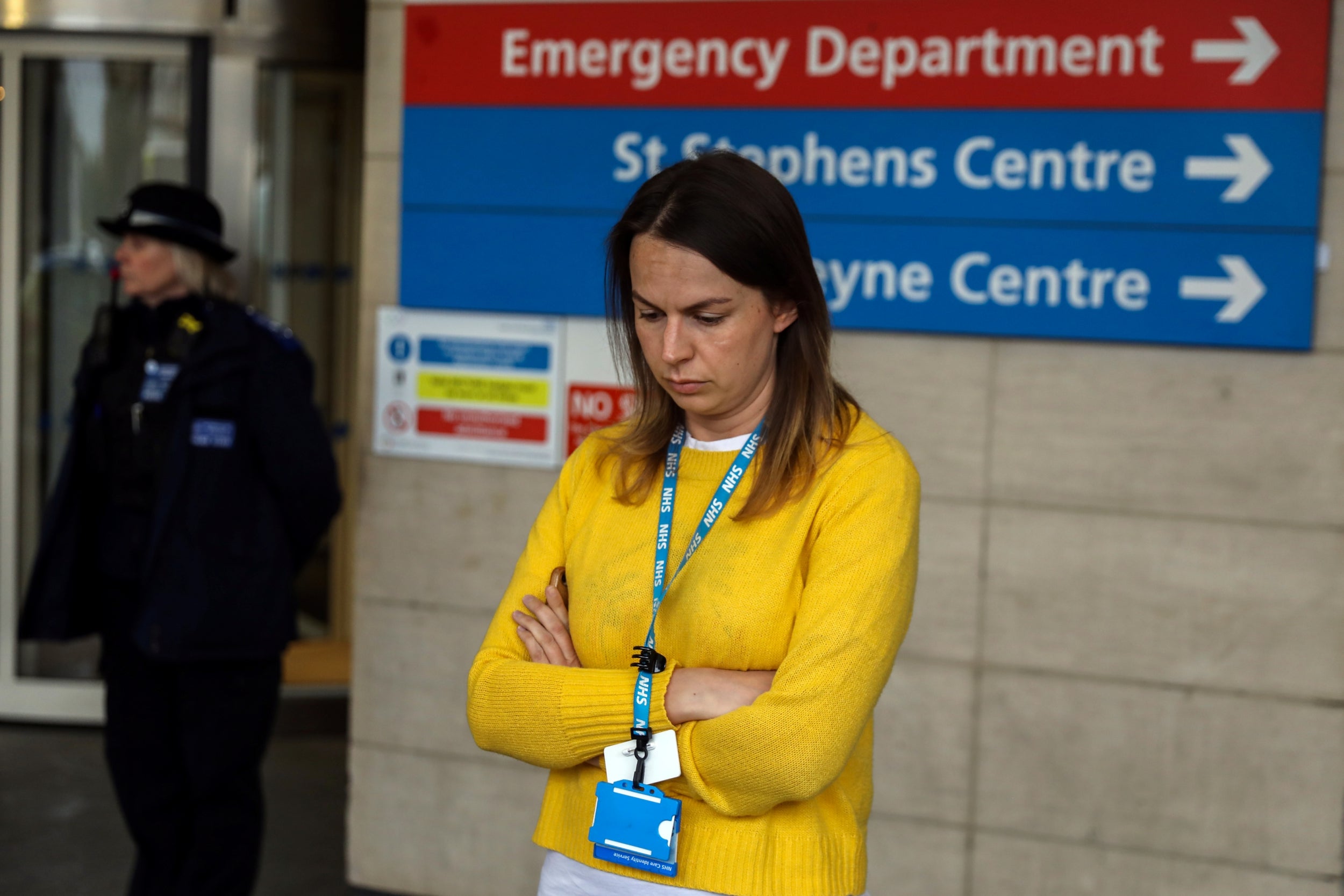
16/30 London
An NHS worker observes a minute’s silence at Chelsea and Westminster Hospital
Reuters
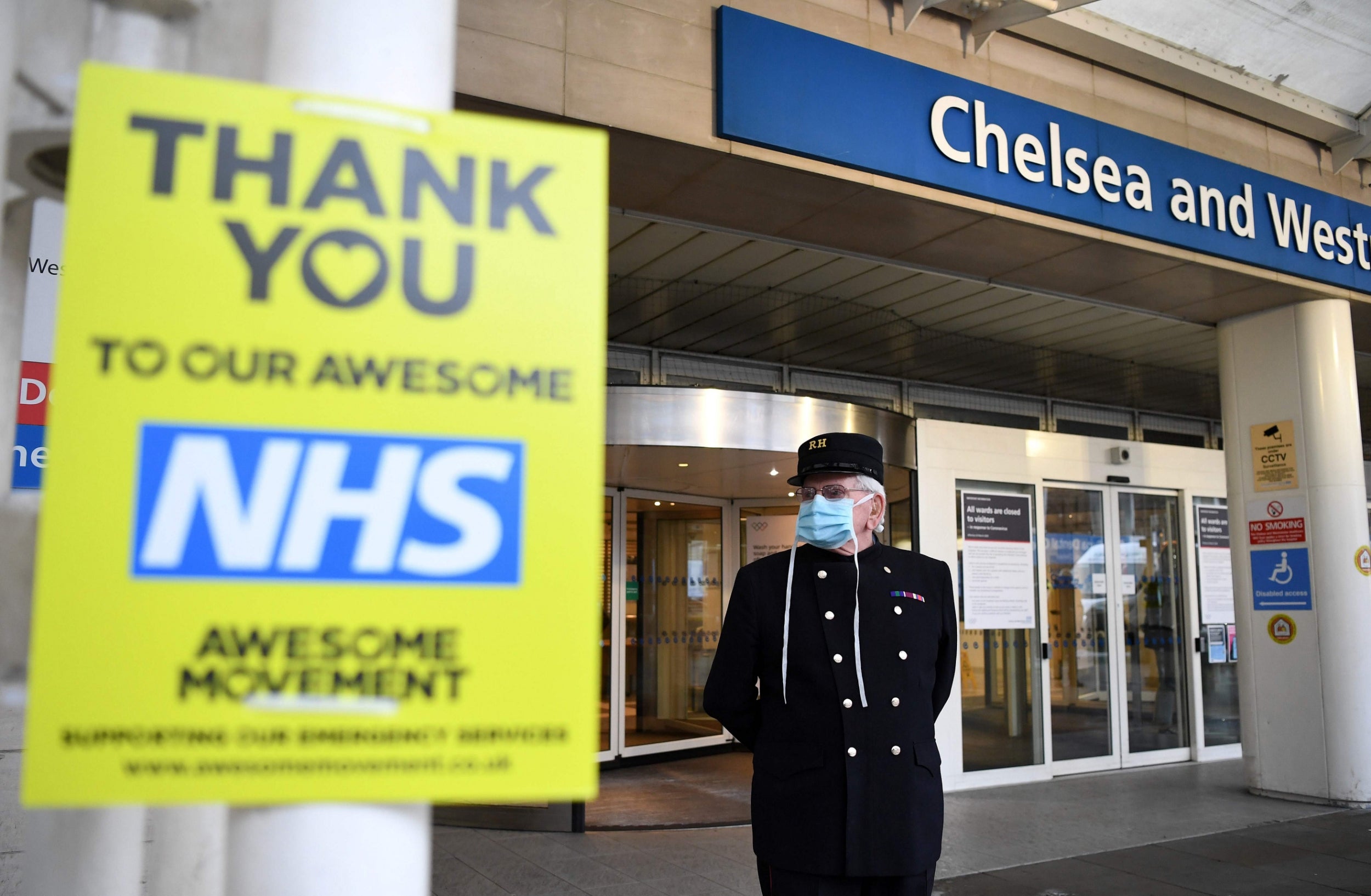
17/30 Chelsea and Westminster Hospital in London
AFP via Getty

18/30 Belfast, Northern Ireland
NHS staff observe a minutes silence at Mater Infirmorum Hospital
Reuters
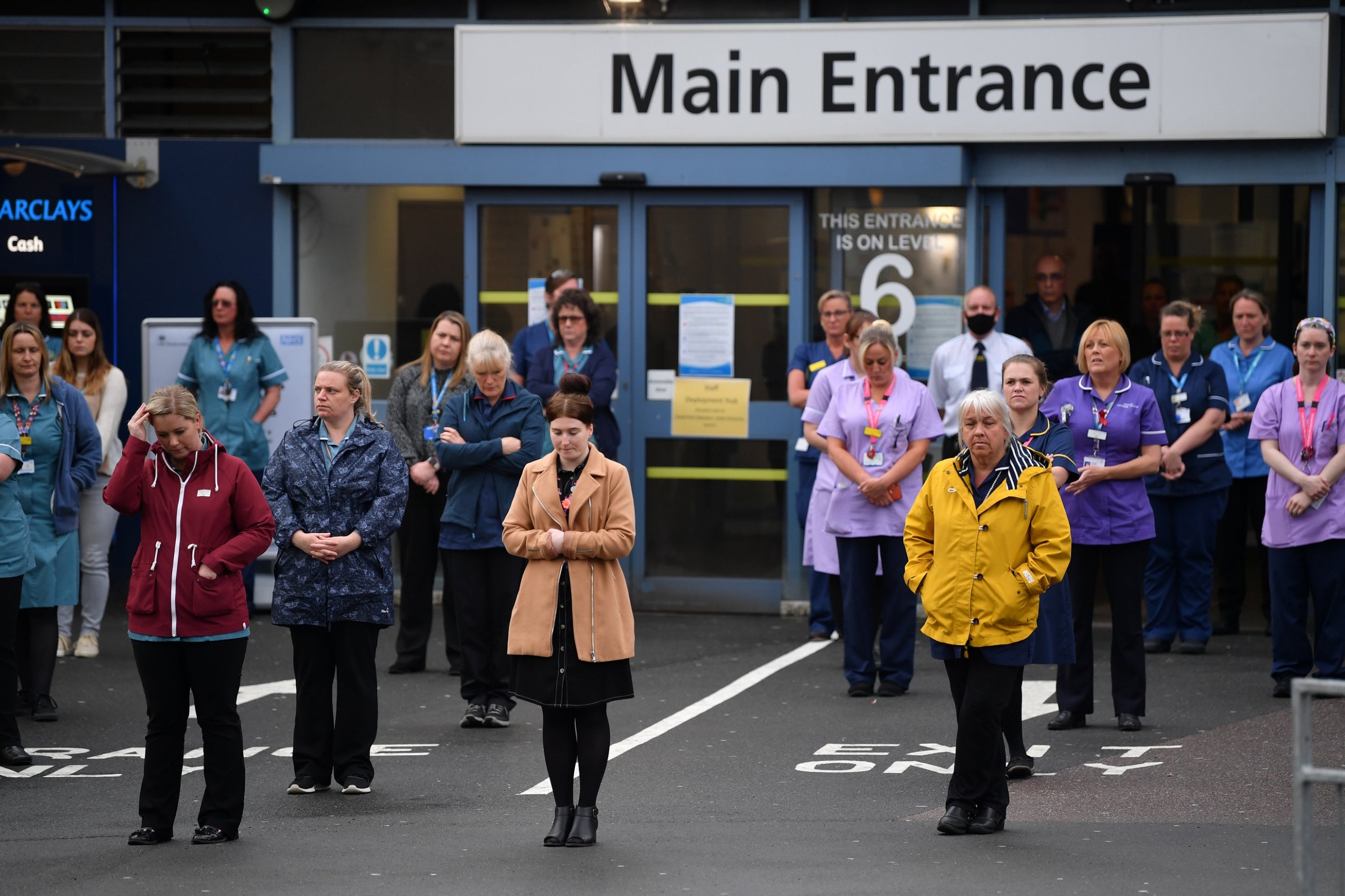
19/30 Plymouth
NHS workers hold a minute’s silence outside the main entrance of Derriford Hospital
Getty
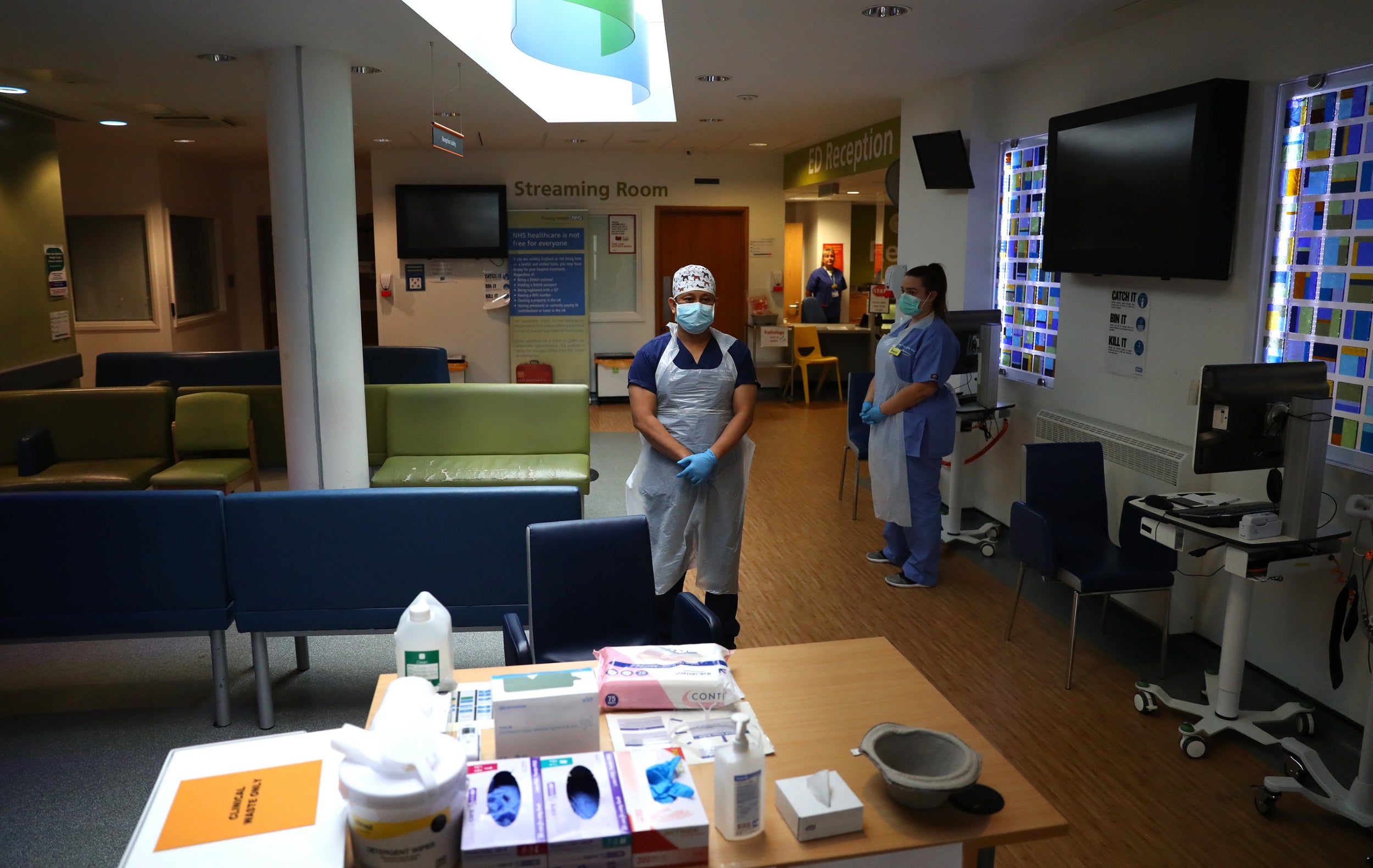
20/30
NHS Frimley Park Hospital staff at the A&E department observe a minute’s silence
Getty
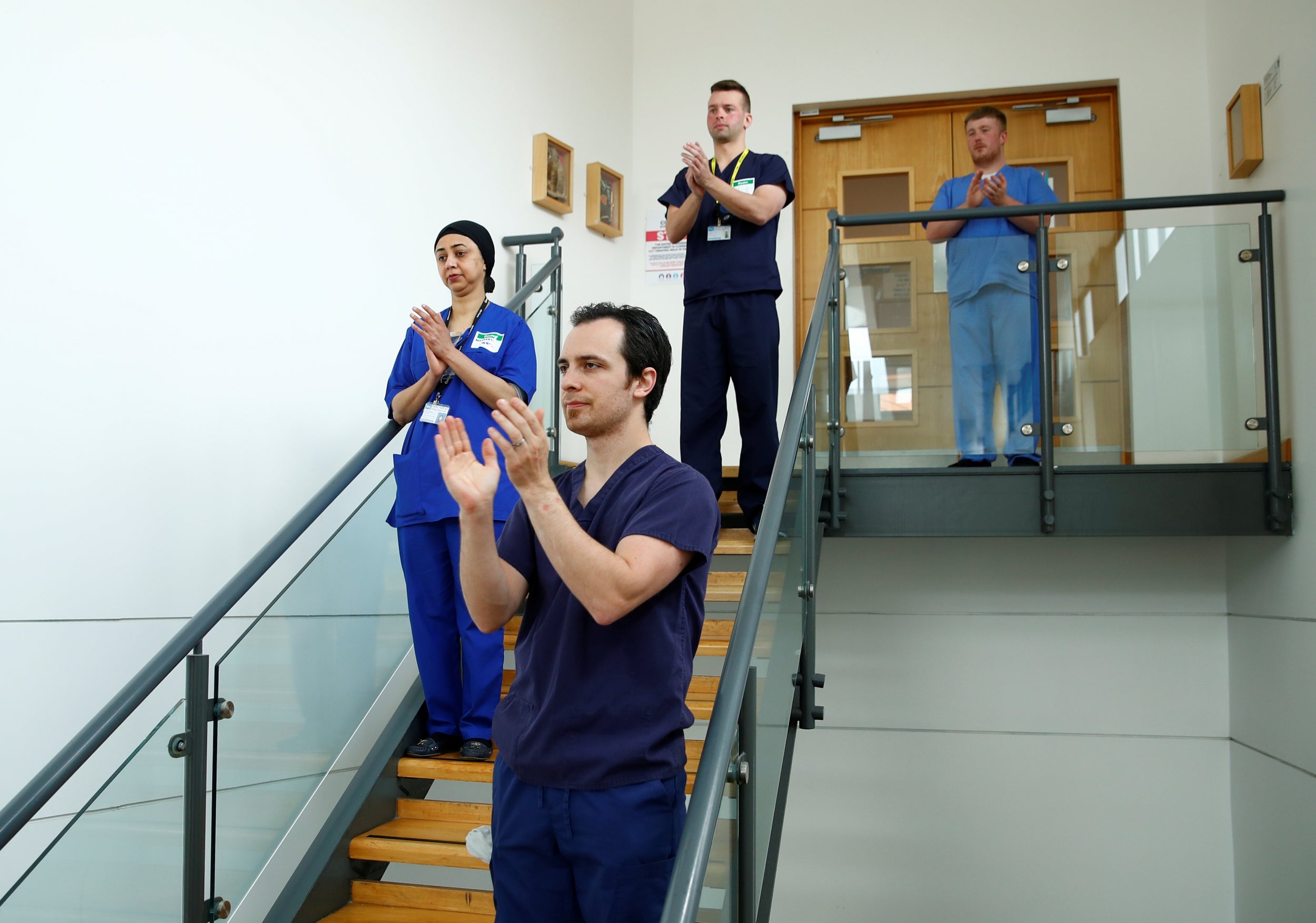
21/30 Mater Infirmorum Hospital
People applaud after a minutes silence in honour of key workers
Reuters
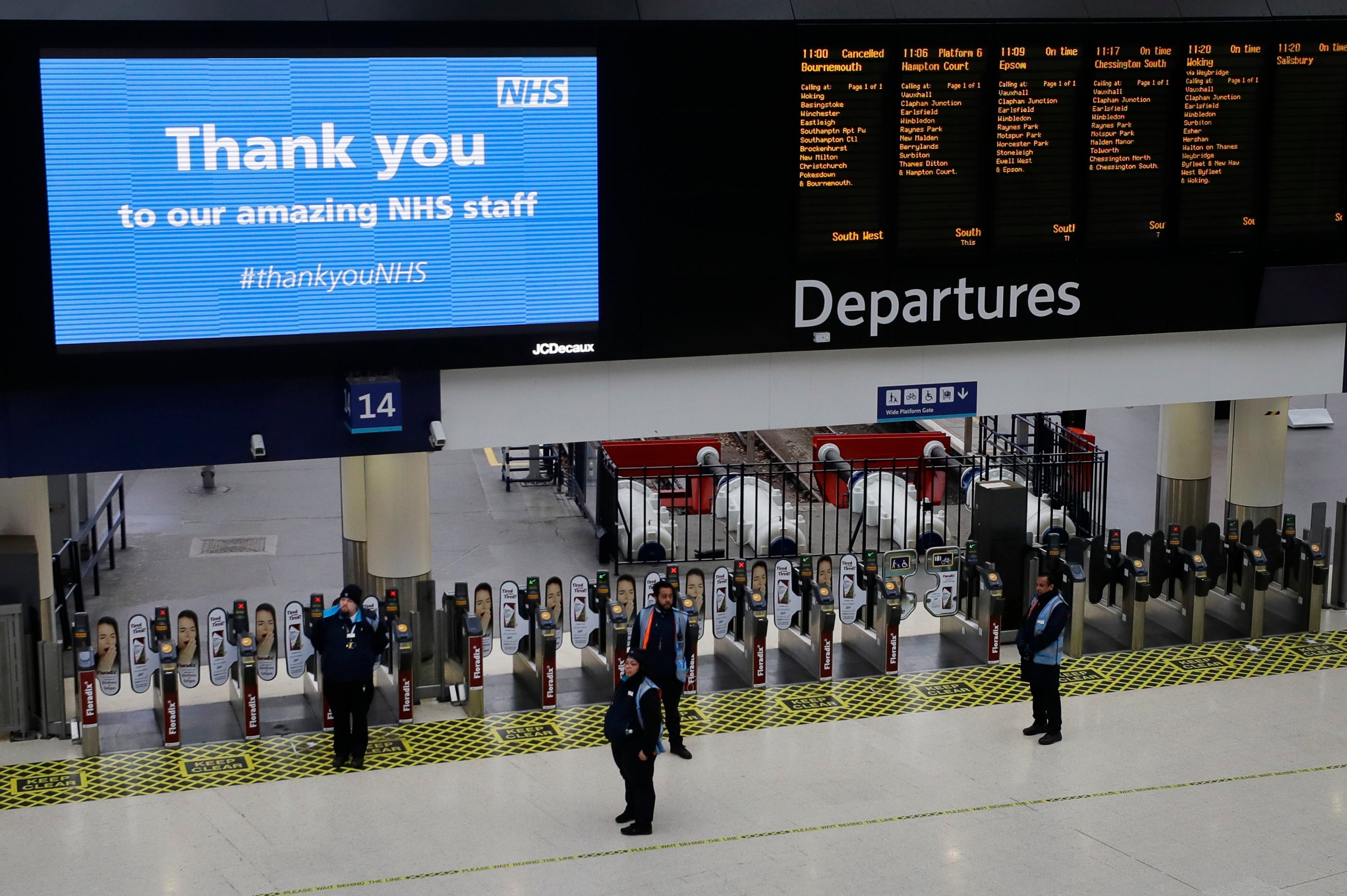
22/30 Waterloo Station, London
AP

23/30
Wreaths laid outside Sheffield town hall
PA

24/30
A group of trade unionists and supporters standing outside Sheffield town hall
PA

25/30
First Minister Nicola Sturgeon stands outside St Andrew’s House in Edinburgh to observe a minute’s silence in tribute to the NHS staff and key workers who have died during the coronavirus outbreak
PA
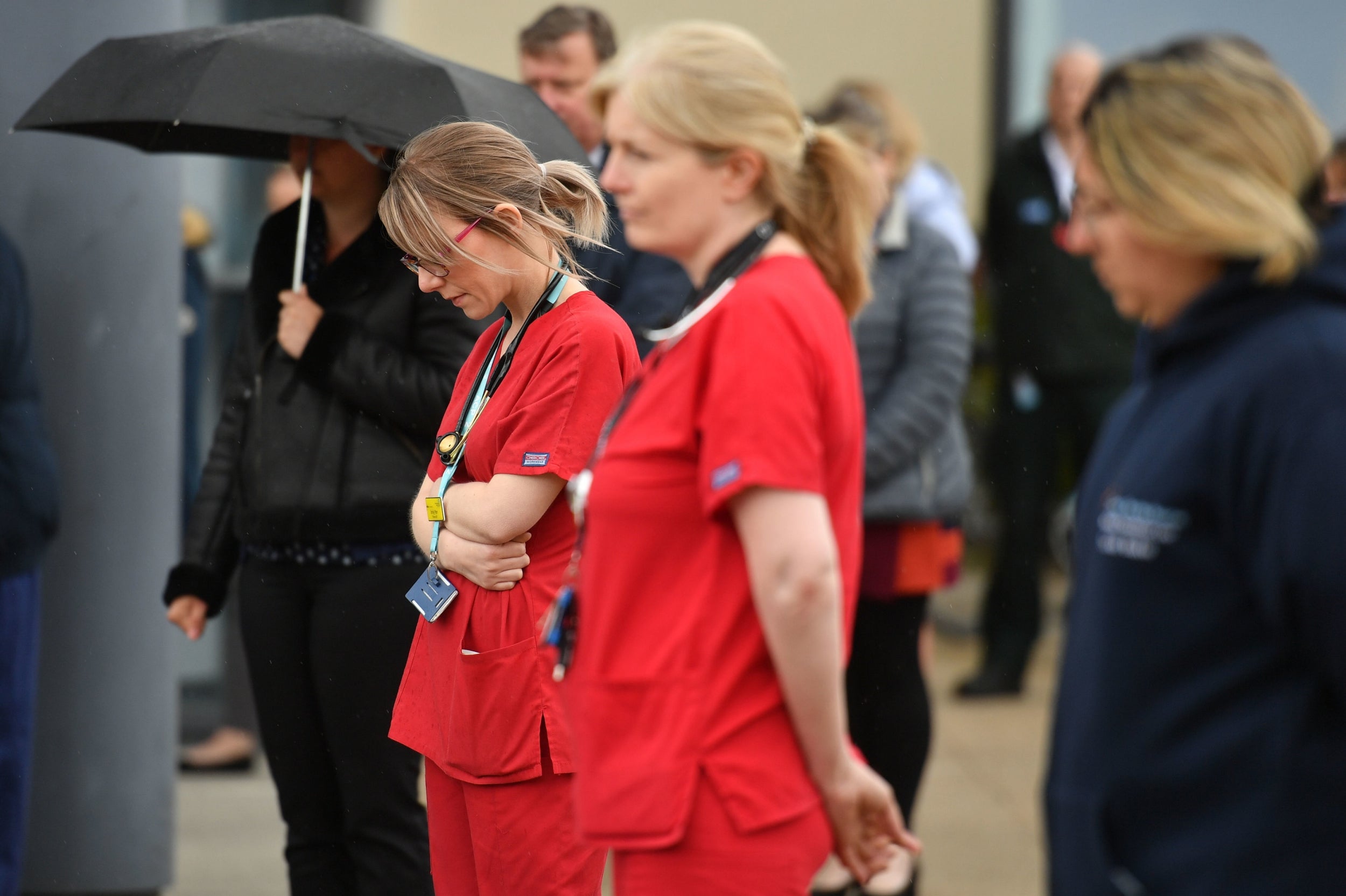
26/30
Staff stand outside the Royal Derby Hospital, during a minutes silence
PA
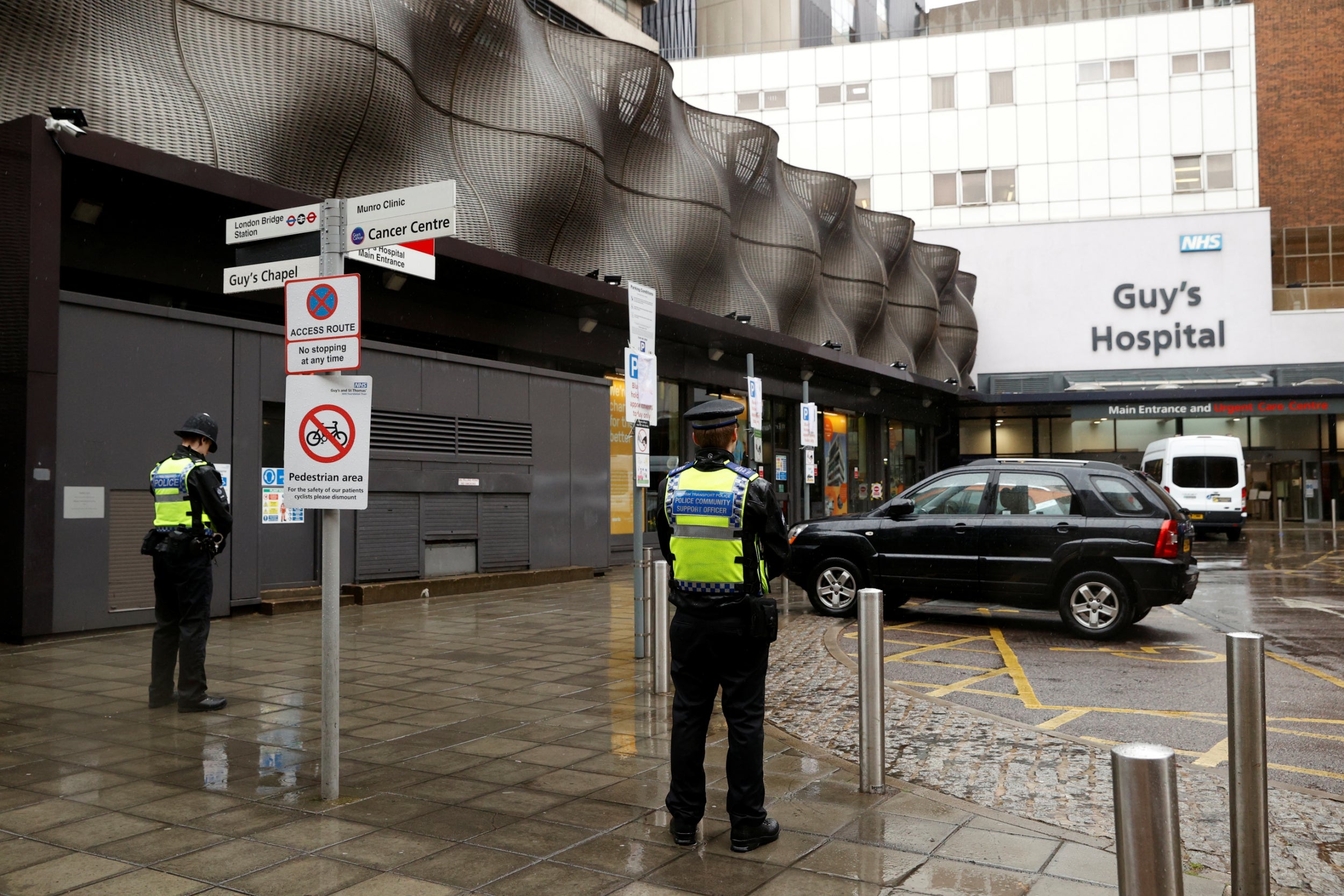
27/30 London
Police officers observe a minutes silence at Guy’s Hospital
Reuters
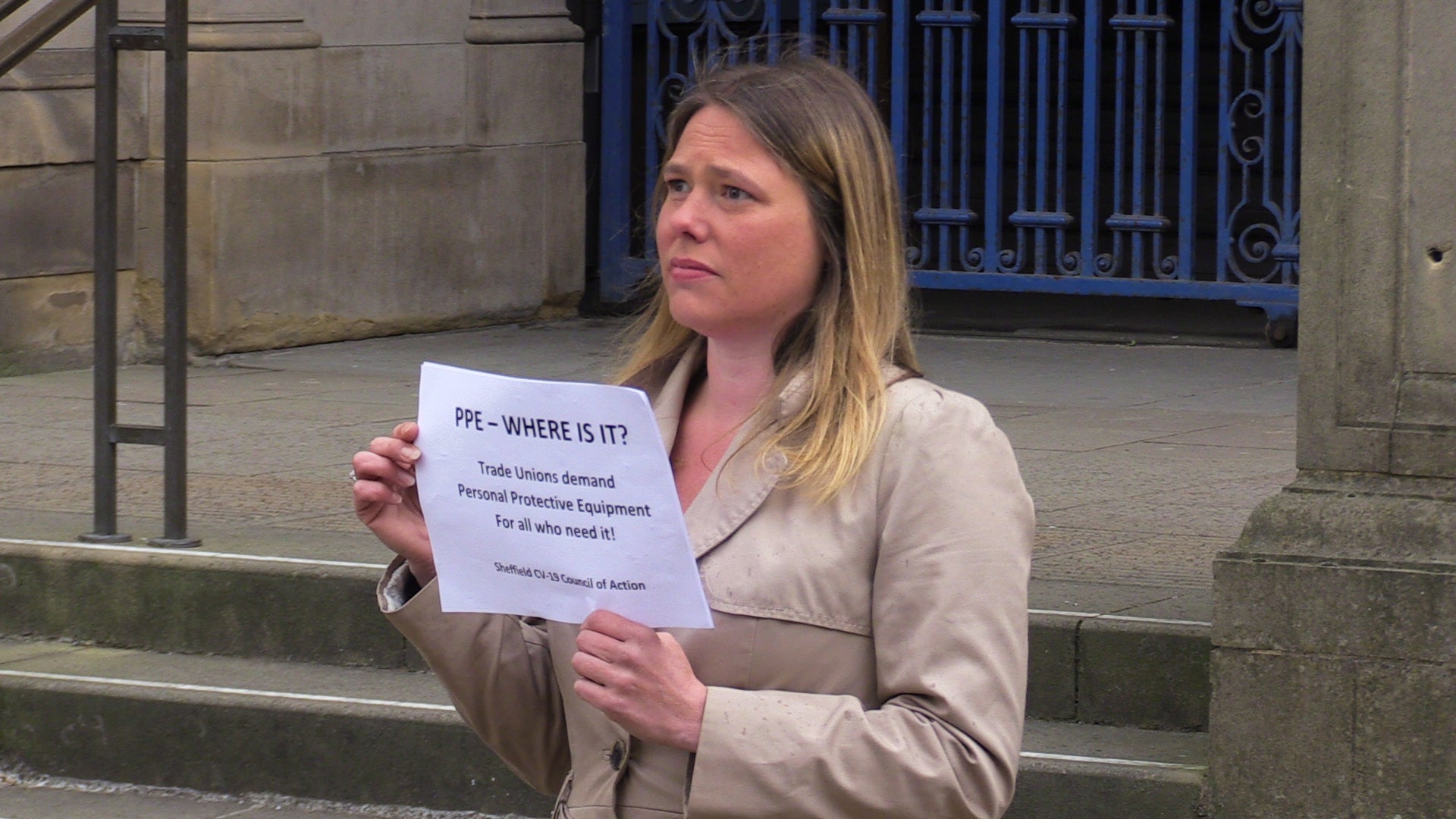
28/30
A woman standing outside Sheffield town hall
PA
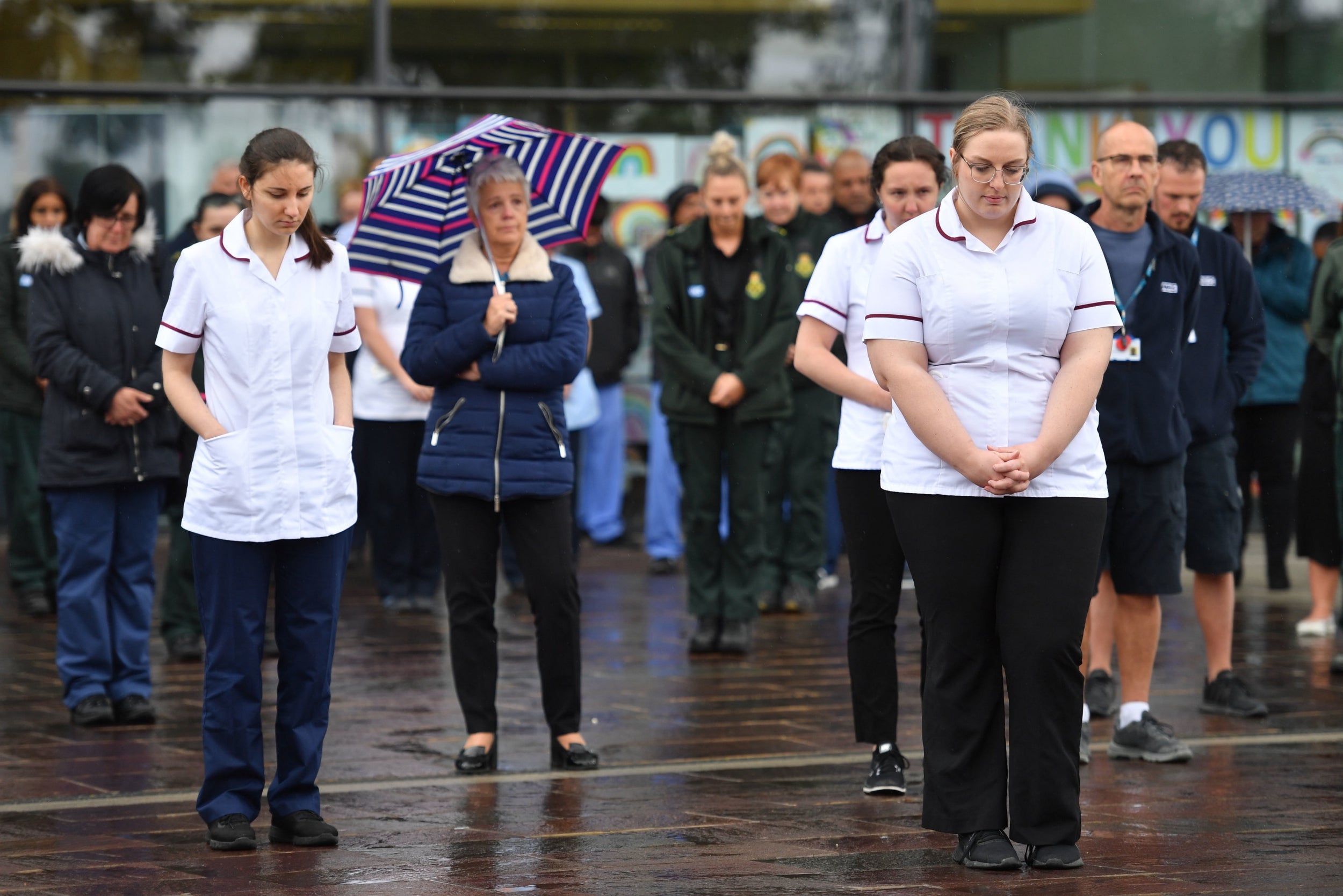
29/30 Royal Derby Hospital
PA
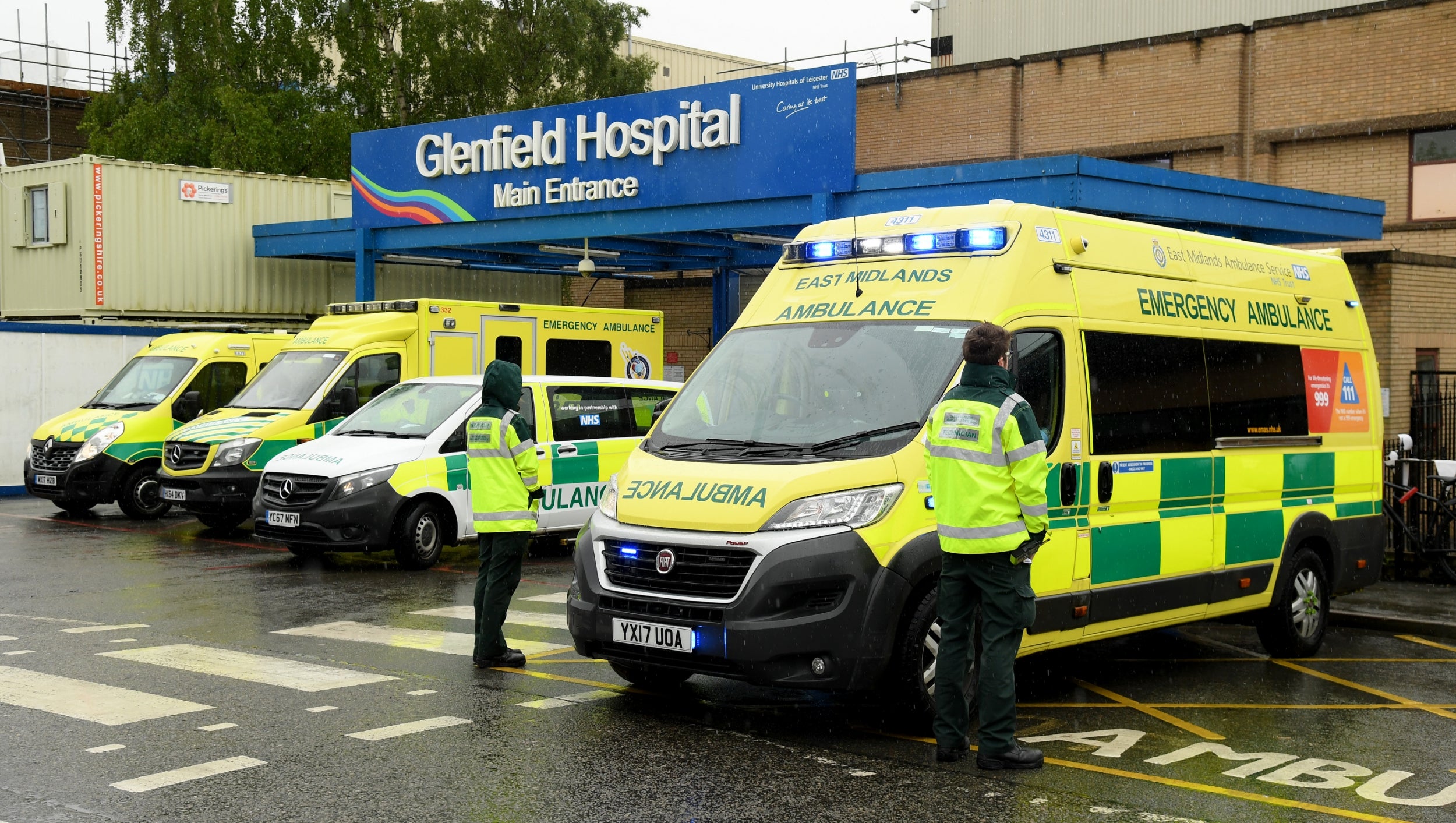
30/30 Leicester,
NHS workers during a minute’s silence outside Glenfield Hospital
Getty

1/30
Staff react outside Salford Royal Hospital in Manchester during a minute’s silence to pay tribute to the NHS staff and key workers who have died during the coronavirus outbreak
PA

2/30
Staff inside Camberwell bus depot in London, during a minute’s silence
PA

3/30
NHS staff at the Mater hospital in Belfast, during a minute’s silence to pay tribute to the NHS staff and key workers who have died during the coronavirus outbreak.
PA

4/30
Shoppers observe a minute’s silence in Tescos in Shoreham
Getty

5/30
Firefighters outside Godstone fire station
PA

6/30 Salford Royal Hospital
Getty

7/30 Salford Royal Hospital
PA

8/30
Hospital workers take part in a protest calling on the British government to provide PPE across Britain for all workers in care, the NHS and other vital public services after a nationwide minute’s silence at University College Hospital in London
AP

9/30
A school children’s poster hanging outside Glenfield Hospital during a minute’s silence
Getty

10/30
A man holds a placard that reads “People’s health before profit” outside St Thomas hospital
Getty

11/30
Staff members applaud outside the Royal Derby Hospital, following a minute’s silence
PA

12/30
Cabinet Secretary Mark Sedwill, Prime minister Boris Johnson and Chancellor of the Exchequer Rishi Sunak, stand inside 10 Downing Street, London, to observe a minutes silence in tribute to the NHS staff and key workers who have died during the coronavirus outbreak
PA

13/30 University College Hospital, London
Hospital workers hold placards with the names of their colleagues who have died from coronavirus as they take part in a protest calling on the British government to provide PPE
AP

14/30
Staff at Waterloo Station in London, stand to observe a minute’s silence, to pay tribute to NHS and key workers who have died with coronavirus
AP

15/30
Medical staff at the Louisa Jordan hospital stand during a UK wide minutes silence to commemorate the key workers who have died with coronavirus in Glasgow
Getty

16/30 London
An NHS worker observes a minute’s silence at Chelsea and Westminster Hospital
Reuters

17/30 Chelsea and Westminster Hospital in London
AFP via Getty

18/30 Belfast, Northern Ireland
NHS staff observe a minutes silence at Mater Infirmorum Hospital
Reuters

19/30 Plymouth
NHS workers hold a minute’s silence outside the main entrance of Derriford Hospital
Getty

20/30
NHS Frimley Park Hospital staff at the A&E department observe a minute’s silence
Getty

21/30 Mater Infirmorum Hospital
People applaud after a minutes silence in honour of key workers
Reuters

22/30 Waterloo Station, London
AP

23/30
Wreaths laid outside Sheffield town hall
PA

24/30
A group of trade unionists and supporters standing outside Sheffield town hall
PA

25/30
First Minister Nicola Sturgeon stands outside St Andrew’s House in Edinburgh to observe a minute’s silence in tribute to the NHS staff and key workers who have died during the coronavirus outbreak
PA

26/30
Staff stand outside the Royal Derby Hospital, during a minutes silence
PA

27/30 London
Police officers observe a minutes silence at Guy’s Hospital
Reuters

28/30
A woman standing outside Sheffield town hall
PA

29/30 Royal Derby Hospital
PA

30/30 Leicester,
NHS workers during a minute’s silence outside Glenfield Hospital
Getty
Shadow social care minister Liz Kendall welcomed the roll out of testing for care homes but warned that staff must also be given adequate protective equipment to do their jobs.
She said: “Further action is urgently required to reduce the spread of the virus and keep care users and staff safe.
“More needs to be done to ensure all care staff get the PPE they need and to ensure social care is properly funded to deal with the extra costs of the pandemic.
“The government must also introduce a strategy for intermediate care, to prevent the spread of Covid-19 by people who are discharged from hospital and help struggling care homes.”


